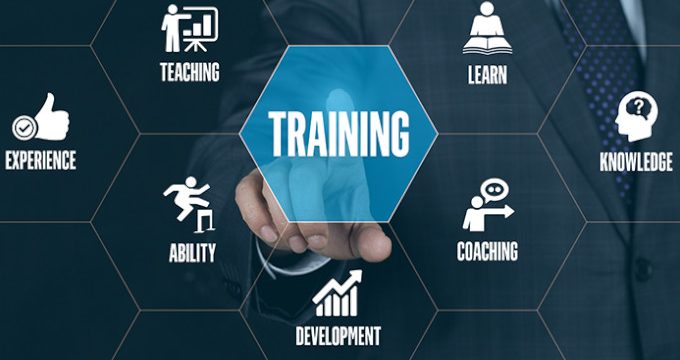Employee onboarding, upskilling, and compliance training are just some of the reasons why companies need automated learning management systems (LMS). The value of LMS for business, though, extends far beyond these examples. Learning Management Systems are playing a major part in employee retention, maximizing engagement, gaining and maintaining a competitive edge, and much more.
According to recent surveys on employee engagement and values, as much as 87% of millennials, which now constitute the majority of the workforce, say that professional and career growth opportunities are crucial for their job satisfaction. Moreover, today’s employees value a personalized approach to their job training and career planning. Hence, a robust Learning Management System is vital for ensuring employee loyalty and minimizing staff turnover.
In this article, we will discuss the main features of learning management systems and look at some of the LMS examples. But first, let’s give a concept of LMS an exact definition.
What is LMS? Examples of Popular LMS Systems for Corporate Training
Used interchangeably with an ‘e-learning platform’, the term Learning Management System refers to an electronic environment used for the administration of educational activities, storing documents, reporting performance and progress, tracking attendance and churn rates, etc. It may or may not incorporate interactive tools for delivering educational content, such as virtual classes, webinars, videos, chats, and discussions, however, most of the best LMS systems for corporate training usually do.
Let’s now take a close look at some of the popular LMS examples.
Skillsoft: rated best in usability, this platform has a rich library of content, dedicated to different branches of knowledge: from HR to IT. Students can access a vast range of essays, videos, presentations, e-books, and whitepapers. It also has a plethora of resources for compliance training.
Simplilearn: a platform of choice for many companies, this LMS for employee training enables users to choose between a variety of learning modes: online, in-person or individual, self-paced. The LMS also features a virtual space called CloudLabs where users can test projects.
Features of Corporate LMS
As you can see, the market for LMS systems offers solutions for different industries and purposes. However, there are features that the best LMS platforms have in common, the ones you should pay attention to when choosing a corporate learning management solution.
Top-notch accessibility
Modern LMS systems should enable learners to study anytime, anywhere. Especially in today’s economy, with lockdowns being reinstated and the WFH model becoming omnipresent, the accessibility of LMS is an important prerequisite for the success of corporate learning initiatives. Users should also be able to revisit their learning materials whenever they feel the need to do so.
Course building and content management features
The LMS should provide your learning managers with the ability to build courses for your company personnel and create unique content. On top of that, it should provide a set of effective tools for managing educational content.
Integration with existing systems
The corporate LMS should integrate with other company systems and databases, such as, for example, the HR information system. This saves time by eliminating dual entry and helps streamline learning management operations.
Progress tracking and reporting
A corporate LMS should provide a module for knowledge assessment and tracking the learners’ progress. This module is essential for finding the best talent, identifying difficulties that learners face, and making the necessary changes to learning content.
Data analytics
On top of that, the system should include a data analytics module with a comprehensive set of data visualization tools to help educators and learners gain insights on the various aspects of educational and training activities.
Multimedia support
To work effectively, your company Learning Management System should enable educators to upload learning content in various formats: PowerPoint presentation, .pdf files, images, videos, e-books, audio and text files, etc.
Corporate branding
The LMS software should be capable of conveying your brand identity. It should grant you the possibility to label your learning environment with company logos and slogans, to infuse learners with corporate spirit.
Learners’ feedback
The LMS software should be able to collect the feedback of users and trainees. This will help educators continuously improve the learning content and make on-demand changes to the learning modules.
E-commerce
Additionally, corporate LMS may integrate e-commerce modules helping companies sell their courses to third parties. Apart from generating new sources of revenue, this may help recruiters identify potential job candidates among people who will be taking this course.
How to Build Your Own LMS System
Even though there are lots of ready-made LMS on the market, it may be justified from a business standpoint that you build your own custom-made system. For example, the existing cloud-based LMS systems may not be fully customizable to your learning needs, too expensive despite the initial ease of entry, require the purchase and installation of additional software, etc.
Building an LMS will need time and investment, but the end product you get will be fully tailored to your requirements. The steps to building custom-made LMS software include:
- Building a prototype
- Development
- Testing
- Continuous support and upgrade
The cost of building your solution will vary depending on a number of factors. For example, in-house development is likely to involve more expenses, and prove more time-consuming, since you will have to recruit and hire local developers that tend to command hefty salaries. Partnering with a reliable software development company, on the other hand, will reduce your development budget and speed up the completion of your project.
At VARTEQ we start with learning all we can about your company needs and the specifics of your business,in order to ensure that the LMS we build has exactly the architecture, design and functionalities you need. Our technical expertise will guide you through all the stages of creating a better employee training system: faster employee onboarding, just-in-time training, micro-learning, mobile deployment and on-demand training.
Looking for a reliable development partner with proven expertise in building LMS systems for corporate learning? Contact us now for a free consultation!

